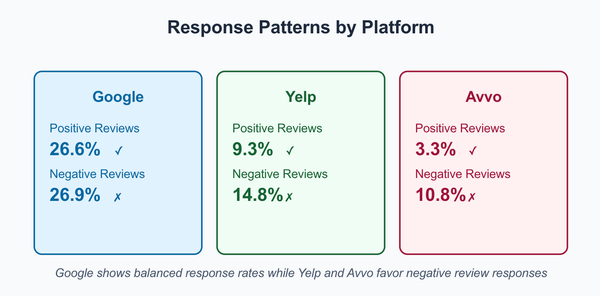Brain Injury Compensation Laws and Settlement Trends

A traumatic brain injury (TBI) can be extremely difficult, not just for the injured person but for their family as well.
If you or your loved one is dealing with a traumatic brain injury (TBI), you already know how life-changing it can be. It’s not just about the physical pain or emotional struggles—there’s often a heavy financial burden too. Medical bills pile up, wages get lost, and long-term care can feel like an impossible expense. Trying to figure out how to file a brain injury compensation claim might feel overwhelming, but don’t worry—you’re not alone. Understanding the laws for traumatic brain injury and knowing what to expect in terms of settlement trends can make a big difference. Let’s dive into everything you need to know so you can focus on getting the compensation you deserve.
What Are Traumatic Brain Injuries?
Our brain is covered with a thick skeleton but is still prone to damage. Traumatic brain injuries, also known as TBIs, are injuries to a victim's brain caused by an external force like a blow or heavy jolt. A person can get TBI because of many reasons like a car accident, workplace accident, slip & falls, sports injuries, any type of violent act, or someone else’s negligence.
The most common symptoms of TBI are a person feeling dizzy, headaches, confusion, memory loss, behavior change, emotional instability, or any type of cognitive decline. These injuries fall under different categories, and the brain injury compensation amount depends on how severely the victim was hurt. Here is the breakdown of three categories of traumatic brain injury:
- Mild - Mild brain injuries are the most common types of TBIs, which usually cause concussions. The victim may feel headaches or dizziness for a certain time. These injuries can be resolved by themselves, but proper medical attention is still necessary.
- Moderate - These types of brain injuries include the victims falling unconscious for several minutes or hours. Moderate TBIs are serious injuries and can cause negative issues without proper medical attention.
- Severe - Severe TBIs are the most serious brain injuries with permanent or long-term mental health issues. Victims of severe brain injuries usually suffer from cognitive decline or behavioral change issues. These injuries are considered life-changing and thus result in a higher brain injury compensation amount.
Remember, all brain injury victims are protected by the laws for traumatic brain injury in the USA. So, whether it’s a mild injury or severe cognitive decline, if someone else’s negligence causes it, you are entitled to be compensated. Hire an expert brain injury lawyer now to help you with the process.
What is an Average Settlement for Brain Injury Compensation Claims?

There is no particular amount of compensation for brain injury set in the legal system. The settlement amount depends on various factors and is usually in six or seven figures due to its severity. A data report by the U.S. Centers for Disease Control (CDC) shows that around 69,000 severe brain injury cases are recorded annually, and the average brain injury compensation amount ranges from $100,000 to $5 million.
Factors Affecting the Brain Injury Compensation Amount
When it comes to getting compensation for a brain injury, there are a few things that can affect how much you might receive. Since every injury is different, the amount you get depends on some factors, like how serious the injury is and how it affects your life in the long run.
- Injury Severity: The more serious the injury, the higher the compensation. Severe injuries that result in long-term or permanent damage will typically lead to a larger settlement.
- Medical Treatment: This includes all the medical bills for your care, from hospital stays to surgeries and rehabilitation. The more treatment you need, the higher the potential compensation.
- Lost Wages: If you’ve had to take time off work or can no longer work due to your injury, you can claim compensation for your lost income.
- Property Damage: If your brain injury was the result of an accident that damaged your property (like a car crash), you can include those repair or replacement costs in your claim.
- Pain and Suffering: Compensation for the physical pain, emotional distress, and quality of life impacts caused by your injury.
- Additional Damages: Other specific costs like future medical expenses, the need for long-term care, or any lifestyle changes that resulted from your injury.
While the exact amount of your compensation depends on your unique circumstances, one thing is certain: brain injuries are serious and can have long-lasting effects on your life. If you're facing a TBI, pursuing a compensation claim can help cover the financial burden of treatment, lost income, and the impact on your life. It's crucial to work with an experienced attorney who can guide you through the process and ensure you get the settlement you deserve.
Recoverable Damages in Brain Injury Compensation Claims
We know that any level of brain injury caused by someone else’s negligence can be compensated. But the question is - what damages can a brain injury compensation cover? Let’s find out:
Economic Damages
Any loss that can be directly measured is known as economic damage. It includes (but not limited to):
- Medical Expenses: Costs for treatments, surgeries, rehabilitation, and other medical needs.
- Lost Wages: Income you missed out on while recovering from your injury.
- Future Care Costs: Expenses for ongoing care if the injury leads to long-term or permanent disabilities.
Non-Economic Damages
Non-economic damages compensate for the emotional and psychological toll of a brain injury. These may include:
- Pain and Suffering: For the physical pain and discomfort caused by the injury.
- Loss of Enjoyment of Life: When the injury affects your ability to enjoy activities or hobbies.
- Emotional Distress: Compensation for mental health challenges, such as anxiety or depression, resulting from the injury.
Punitive Damages
Punitive damages are less common and are only awarded in cases of gross negligence or reckless behavior, such as a drunk driving accident. These damage claims are meant to punish the responsible party and deter others from engaging in similar actions.
Traumatic Brain Injury Act and Key Laws for Brain Injury Compensations

Understanding the laws for traumatic brain injury compensation can help you confidently navigate the legal process. Here's a look at the Traumatic Brain Injury Act and other key laws that can impact your claim:
Traumatic Brain Injury Act
First introduced in 1996 and reauthorized multiple times since, the TBI Act focuses on improving prevention, treatment, and care for individuals with Traumatic brain injuries. It provides funding for research, education, and state programs to enhance the quality of life for TBI survivors. While the Act doesn’t address brain injury compensation claims directly, it plays a critical role in creating resources and raising awareness to support victims.
Key Laws That Impact Compensation
- Personal Injury Law: Personal injury law in the USA allows individuals to seek compensation if someone else's negligence caused the brain injury. This includes cases involving car accidents, workplace injuries, or medical malpractice.
- Worker’s Compensation Laws: If the injury occurred on the job, worker’s compensation laws in the USA might cover medical expenses and lost wages. However, these laws vary by state, and the compensation is often limited compared to personal injury claims.
- Statutes of Limitations: Every state has a specific time limit for filing a brain injury compensation claim. Missing this deadline can result in losing your right to seek compensation, so acting quickly is essential.
- Comparative Negligence Rules: Some states follow comparative negligence rules, according to which your brain injury compensation amount may be reduced if you are found partially at fault for the accident. For example, if you were 20% at fault, you would only get 80% of the total claim approved.
These laws are in place to protect your rights and ensure you receive fair compensation for your injury. Working with an experienced attorney can help you understand how laws for traumatic brain injuryapply to your specific case so you can focus on your recovery while they handle the legal complexities.
Legal Path to Get the Brain Injury Compensation You Deserve
The US government rules make it easy to recover your lost brain injury compensation for your damages. However, you must follow the protocols and the right legal path to get the most out of your lawsuit. Here are the steps you must follow:
1. Initial Consultation
First of all, hire an experienced and dedicated personal injury attorney or brain injury lawyer in your area who knows the legal aspects of the case. These professionals can give you valuable advice and save you from mistakes that may weaken your case. You can check this in-depth Lawyer map to learn how many attorneys are in your area by practice and their reviews. It will help you choose the right brain injury attorney that best fits your requirements.
2. Investigation and Documentation
Once you have the legal warrior by your side, you will start gathering evidence, including medical records, police reports, and witness statements, to support your claim. Every victim must show this evidence to prove the other party's negligence; otherwise, their case may not be taken into consideration.
3. Filing the Claim
Once sufficient evidence is gathered, your lawyer will file a claim with the at-fault party’s insurance company or in court.
4. Negotiation and Settlement
Many cases are resolved through negotiation, where the other party or their insurance company offers you a certain compensation amount to cover your basic losses. But beware, as these negotiations are mostly unfair and can be much less than the requirement. Your lawyer will aim to secure a fair brain injury compensation amount covering the full extent of your losses.
5. Litigation (If Necessary)
If a settlement cannot be reached, the case may proceed to trial in front of the court. A judge or jury will then determine the outcome and decide how much compensation should be given to cover the victim’s financial, mental, and emotional damages.
Pro Tips to Maximize Traumatic Brain Injury Compensation

To ensure the best possible outcome in a brain injury case, victims and their families should follow these steps:
Seek Immediate Medical Attention
Before thinking about anything else, you must seek immediate medical attention if you feel like you have been hit on your head. It will save you from further damages, ensure that your injuries are well-documented, and prevent the other party from arguing that the injury wasn’t serious.
Keep Detailed Records
Insurance companies always try to prove that the injury was minor to minimize the compensation amount. So, maintain a file with medical bills, receipts, and any communications related to the incident.
Be Careful with Social Media
Social media is a two-edged sword. On the one hand, you can use it to share your unfortunate brain injury story with the world; insurance companies may use your posts to argue that your injuries aren’t as severe as claimed. So, beware of what you share and try to take prompt action without waiting any time.
Hire an Experienced Lawyer
Laws for traumatic brain injury in the USA are victim-friendly but can be complex without proper knowledge. A seasoned brain injury lawyer can make a significant difference in the outcome of your claim and secure the compensation amount you deserve.
Take the Next Step to Secure Your Rights!
Dealing with a traumatic brain injury (TBI) can be tough, both physically and emotionally, and the legal process might seem more confusing without proper assistance. But understanding your rights, knowing what you can claim, and having the right support can make things easier. The laws for traumatic brain injury are in place to help you get the compensation you need to cover medical bills, lost wages, and other challenges caused by the injury.
Can't find the right professional to assist you! Sign up to Lawyersrating.fyi and get connected with some of the best brain injury lawyers in the USA who can guide you through the process and help you get the compensation you deserve.
FAQs
Q: What if the at-fault party doesn’t have insurance?
If the responsible party has no insurance, you might have to rely on your insurance (e.g., uninsured motorist coverage) or file a lawsuit to recover damages. Talk to your lawyer to avoid hefty mistakes before taking the next step so you can keep your case strong from the beginning.
Q: Can I claim compensation if the injury was partly my fault?
Yes, depending on your state’s laws, you can claim compensation even if you are partly at fault in the USA. Comparative fault rules might reduce your brain injury compensation amount proportionally to your level of fault.
Q: How long does it take to receive compensation?
It varies on the severity of your case and the state you belong to. Simple claims might settle in a few months, while complex cases could take several years to award you fair compensation.





